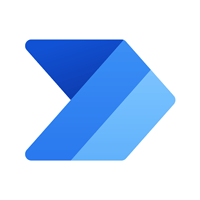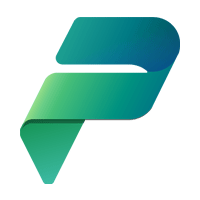What’s Included?
Prerequisites
- No prior technical experience is required
- Ideal for beginners, including business users, students, and first-time app makers
- Familiarity with Microsoft 365 (like Excel, Teams, or SharePoint) is helpful but not mandatory
- You do not need coding skills—this course emphasizes low-code/no-code tools
Skills You’ll Gain
- Platform Components
- Tool Integration
- Low-Code Development
- AI Enhancement
- Workflow Planning
- Data Organization
- Certification Preparation
Self Study Materials Included
Videos
Engaging visual content to enhance understanding and learning experience.
Podcasts
Insightful audio sessions featuring expert discussions and real-world cases.
Audiobooks
Listen and learn anytime with convenient audio-based knowledge sharing.
E-Books
Comprehensive digital guides offering in-depth knowledge and learning support.
Module Wise Quizzes
Interactive assessments to reinforce learning and test conceptual clarity.
Additional Resources
Supplementary references and list of tools to deepen knowledge and practical application.
Tools You’ll Master

Dataverse

Power Apps

Power Automate

Power Bl

Power Platform

Power Virtual Agents
What You’ll Learn
Understand Core Microsoft Power Platform Components
Explore Power Apps, Automate, BI, and Dataverse features.
Integrate Power Platform with Microsoft Services
Connect with Teams, Microsoft 365, and external systems.
Learn Business Value of Low-Code Solutions
Discover Power Fx and benefits of low-code development.
Enhance Development with Copilot and AI Features
Use generative AI to streamline apps and automation.
Course Modules
Module 1: Describe the Business Value of the Microsoft Power Platform
1.1 Introduction
1.2 Explore Microsoft Power Platform
1.3 Describe the Business Value of the Power Platform
1.4 Explore Connectors and Microsoft Dataverse
1.5 Use Artificial Intelligence to Increase Productivity
1.6 Explore the Business Value of Power Fx
1.7 Describe How Power Platform Works with Microsoft 365 Apps and Services
1.8 Explore How Power Platform Works with Microsoft Teams
1.9 Describe How Power Platform Works with Microsoft Dynamics 365 Apps
1.10 Explore How Microsoft Power Platform Apps Work Together
1.11 Describe How Power Platform Solutions Consume Microsoft Azure Services
1.12 Summary
Module 2: Identify Foundational Components of Microsoft Power Platform
2.1 Introduction
2.2 Describe Power Platform Administration
2.3 Describe Power Platform Security and Governance
2.4 Explore Microsoft Dataverse
2.5 Examine Power Platform Connectors
2.6 Summary
Module 3: Describe How to Build Applications with Microsoft Power Apps
3.1 Introduction
3.2 Describe Power Apps
3.3 Explore Canvas Applications
3.4 Explore Model-Driven Applications
3.5 Differentiate Between Canvas Apps and Model-Driven Apps
3.6 Build a Basic Canvas App
3.7 Build a Basic Model-Driven App
3.8 Summary
Module 4: Describe Building Automation with Microsoft Power Automate
4.1 Introduction
4.2 Describe the Capabilities of Power Automate
4.3 Explore the Different Power Automate Apps
4.4 Describe the Components of a Cloud Flow
4.5 Consider Power Automate Scenarios
4.6 Describe Process Mining
4.7 Build a Basic Power Automate Cloud Flow
4.8 Build a Cloud Flow with Copilot
4.9 Build a Desktop Flow
4.10 Describe the Business Value of Power Automate
4.11 Summary
Module 5: Describe the Capabilities of Microsoft Power BI
5.1 Introduction
5.2 Describe Using Power BI to Build Data-Driven Analytics
5.3 Explore the Different Power BI Elements
5.4 Describe Cleaning and Transforming Data in Power BI Desktop
5.5 Describe Using AI Insights to Spot Trends and Anomalies
5.6 Build a Basic Dashboard
5.7 Consider the Business Value of Power BI
5.8 Summary
Module 6: Demonstrate the Capabilities of Microsoft Power Pages
6.1 Introduction
6.2 Explore Power Pages
6.3 Describe the Business Value of Power Pages
6.4 Build a Power Pages Site
6.5 Use Cases to Use Copilot to Streamline the Process of Building a Power Pages Site
6.6 Summary
Module 7: Describe the AI Authoring Experience in Power Platform
7.1 Introduction
7.2 Explore Copilot Studio
7.3 Describe the Components of Copilot Studio
7.4 Create a Basic Agent
7.5 Describe Use Cases for Generative AI Bots
7.6 Describe AI Builder
7.7 Describe the Lifecycle to Create an AI Builder Model
7.8 Summary
Frequently Asked Questions
The PL-900 - Microsoft Power Platform Fundamentals training is ideal for individuals aiming to enhance their skills in understanding the core capabilities of the Microsoft Power Platform. It is particularly beneficial for professionals in roles such as Power Platform App Makers, Business Users, Functional Consultants, and those seeking to enter the technology and business solutions sector. The PL-300 course is also suitable for anyone looking to gain a comprehensive understanding of Power Apps, Power Automate, Power BI, and Microsoft Dataverse and achieve the Microsoft Certified Power Platform Fundamentals certification.
Yes, the Microsoft Power Platform Fundamentals (PL-900) course includes 1 Day (8 Hours) of hands-on labs and practical exercises. These sessions are designed to provide real-world experience in Power Apps, Power Automate, and Power BI, allowing you to apply theoretical knowledge to practical scenarios. You will work on creating simple applications, automating basic workflows, and building basic Power BI reports to reinforce your learning.
Yes, the Microsoft Power Platform Fundamentals course is offered entirely online through NetCom Learning's platform as a Virtual Instructor-Led Training (VILT). As a leading provider of online IT and business training, NetCom Learning delivers a structured learning experience, including access to course materials like lectures, readings, and assignments, all accessible via an online portal. This format allows you to study at your own pace while benefiting from expert instruction and community support.
Yes, the Microsoft Certified Power Platform Fundamentals certification is recognized globally by various industries and organizations that utilize the Microsoft Power Platform. This certification validates your expertise in Power Apps, Power Automate, and Power BI and enhances your credibility in the international job market.
Upon completing the Power Platform Fundamentals (PL-900) training, you can pursue various career opportunities, including Citizen Developer, Business Analyst, Functional Consultant, and aspiring Power Platform Developer. The PL-900 certification course opens doors to roles in organizations across various industries, where your skills will be highly valued.
To enroll in the PL-900 Power Platform Fundamentals training program, please visit the NetCom Learning website and navigate to the course page. Here, you can select your preferred schedule and payment option. Additionally, you can contact our enrollment team directly by using the 'Contact Us' option on our website – NetCom Learning for any assistance you may need during the registration process.
The instructors for the Microsoft Power Platform Fundamentals – PL-900 course are Microsoft Certified Trainers (MCTs) and experienced professionals with significant expertise in the Microsoft Power Platform, including Power Apps, Power Automate, Power BI, and Microsoft Dataverse. They are selected based on their expertise, teaching experience, and certifications. Our instructors undergo a rigorous selection process to ensure they provide high-quality training.
When you enroll with NetCom Learning for the Power Platform Fundamentals – PL-900 course or any other training program you will gain access to study materials and resources, such as digital courseware, Assessment on PL-900, downloadable guides. To gain more insights on Microsoft Power Platform you can also refer more related resources such as - Microsoft Power Platform Master Class Webinar, What is Microsoft Power Platform blog and more.
Taking the PL-900 course with NetCom Learning offers numerous benefits, including expert instruction from Microsoft Certified Trainers (MCTs), comprehensive hands-on labs and practical exercises, flexible VILT - learning options, and potentially career support resources. We are committed to providing a high-quality learning experience that helps you achieve your professional goals.
Missing a live class will not significantly impact your ability to complete the course. All live sessions are recorded and made available to students. Additionally, you can access course materials and receive support from instructors outside of class hours. However, attendance is recommended to maximize the learning experience.
Yes, you will receive a certificate of completion upon successfully completing the Power Platform Fundamentals training. This certificate verifies your participation and mastery of the course content. Also, after passing the PL-900 exam you can earn Microsoft Certified Power Platform Fundamentals Certification.
Yes, there are several related courses and certifications that can further enhance your skills, including: Courses: PL-200 - Microsoft Power Platform Functional Consultant Course, PL-400 - Microsoft Power Platform Developer Course, PL-600 - Microsoft Power Platform Solution Architect Course, PL-7004 - Implement AI models with Microsoft Power Platform AI Builder Course Certifications: Microsoft Power Platform Functional Consultant Associate Certification, Microsoft Power Platform Developer Associate Certification, Microsoft Power Platform Solution Architect Expert Certification These programs build upon the knowledge gained in the PL-900 course.
Yes, NetCom Learning provides corporate training solutions tailored to meet the specific needs of businesses. Our corporate training programs can be customized to address your organization's goals and enhance the skills of your employee